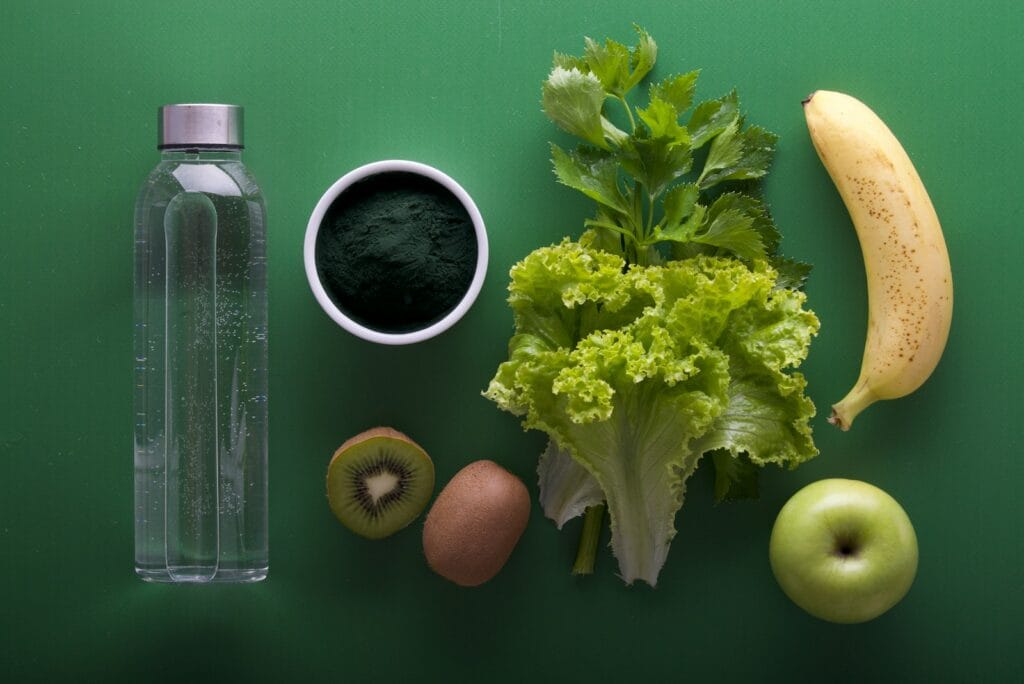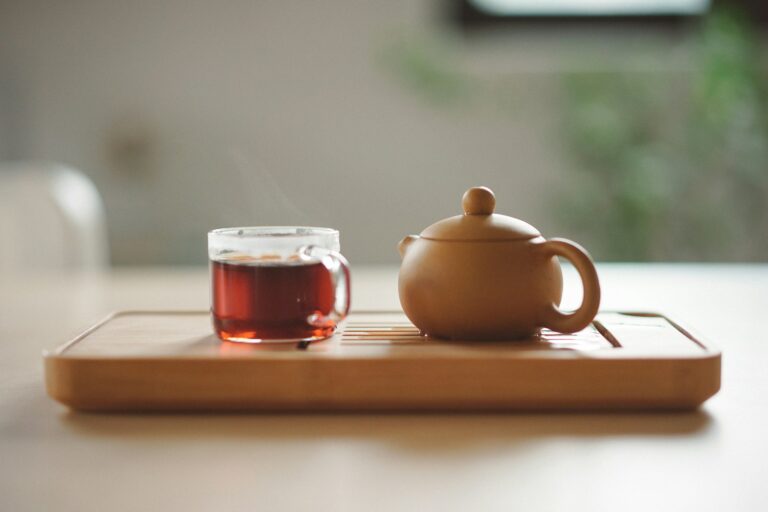Getting healthier doesn’t have to mean overhauling your life. Little everyday choices can really add up. It’s those small, steady changes—done over and over—that create real health benefits. Most healthy folks aren’t following wild diets or sweating through punishing workouts; they’re just sticking with simple routines that actually fit their lives.
You might not think much of taking the stairs or drinking an extra glass of water, but those things matter. Small decisions add up over time, and the effects sneak up on you in a good way. These ridiculously easy habits can become second nature if you keep at them.
The good news? You don’t need to flip your world upside down. Just start with one or two micro habits. Maybe that’s a short walk after dinner or a glass of water first thing in the morning. These tiny actions barely take effort but, honestly, they do add up.
The Power Of Small Wellness Habits
Tiny tweaks to your daily routine can lead to big changes in how you feel. Sure, a small habit might seem unimportant at first, but those are the ones that stick and slowly build a healthier foundation.
Why Micro Habits Matter
Small habits are easy to keep up with because they don’t ask much from you. If something takes just a minute or two, you’re way less likely to skip it.
Drinking a glass of water before breakfast or taking a few deep breaths before checking your phone—these micro-wellness changes don’t eat up your time or drain your willpower.
What’s great is that you don’t need fancy gear or a bunch of free time. If you’re busy (and who isn’t?), these habits actually fit into your day.
How Consistency Drives Long-Term Change
The real shift happens when you repeat these small actions every day. One glass of water won’t do much, but a year of drinking water every morning? That’s a different story.
Benjamin Franklin had it figured out—he focused on one small improvement at a time, not a giant list all at once.
Over time, these small shifts can actually change your brain and the way you see yourself. Research points out that sticking with little habits leads to:
- Changes in your brain’s wiring
- Automatic behaviors (you do them without thinking)
- Identity shifts (“I’m someone who exercises”)
- Benefits that build on each other
Usually, it takes about 66 days for a new habit to start feeling automatic.
Understanding Habit Formation
Your brain works in a loop: cue, routine, reward. Small wellness habits use this loop, working with your brain instead of against it.
Try connecting a new habit to something you already do. For example, after you brush your teeth in the morning, stretch for a minute.
Behavioral scientist BJ Fogg explains that habits need three things:
- Motivation – You want to change
- Ability – It’s easy to do
- Prompt – A reminder
Small habits are simple, so you don’t need a ton of motivation. That’s why they work.
Daily Wellness Habits That Make A Difference
Everyday actions can boost your health more than you’d think. These habits are quick, but stick with them and you’ll notice more energy and a better mood.
Start Your Day With A Healthy Morning Routine
A good morning routine can change your whole day. Try waking up 15–30 minutes earlier so you’re not rushing around—less stress right from the start.
Drink a glass of water when you get up to rehydrate after sleep. It wakes you up and helps your body work better.
Make your bed—it’s a small win that makes your space feel tidier.
Jot down your top three priorities for the day. Keeping it simple helps you focus.
Eat a breakfast with protein and fiber. Oatmeal with nuts or eggs with veggies are way better than sugary cereals.
Simple Movement And Physical Activity
You don’t need a fancy workout plan to move more. Just take the stairs instead of the elevator when you can.
Try to fit in a few 10-minute movement breaks throughout your day. If you sit a lot, set a reminder to stand up and stretch every hour.
Walking is underrated. A 15-minute walk after a meal can help digestion and clear your head.
Park farther away from the entrance when you go places. Those extra steps really do add up.
Some easy daily movement goals:
- 8,000–10,000 steps
- 2–3 minutes of stretching in the morning
- Stand up for 5 minutes every hour
- One flight of stairs each day
Staying Hydrated Throughout The Day
Staying hydrated can change your energy and even your skin. Most folks need about 8 cups (64 ounces) a day, but it depends on your activity and where you live.
Carry a reusable water bottle everywhere. Bottles with time markers can help you remember to drink.
If plain water isn’t your thing, add some cucumber, lemon, or berries for flavor.
Set little hydration goals: a glass when you wake up, before every meal, and one an hour before bed (so you’re not up all night).
Nutritious Choices For Better Health
You can improve your nutrition with tiny swaps. Try trading one processed snack for fruit or veggies each day.
Aim for color in your meals—different colors mean different nutrients. Shoot for at least three colors on your plate.
Add protein to breakfast and lunch, not just dinner. It helps keep your energy steady and cuts down on snacking.
Boost your meals with easy add-ons:
- Sprinkle chia or flax seeds on yogurt or oatmeal
- Toss spinach into smoothies (you won’t taste it)
- Use herbs and spices instead of salt
- Pick whole grains over white bread or rice
Getting 10–15 minutes of sunshine gives you vitamin D, which is great for your mood and immune system.
Mental Wellness And Self-Care Habits
Taking care of your mind is just as important as your body. Simple daily actions can help you manage stress and feel more balanced, even when life gets hectic.
Practicing Gratitude And Positive Mindset
Gratitude shifts your focus from what’s missing to what’s already good. Just 5 minutes a day with a gratitude journal can lift your spirits.
Try:
- Listing three things you’re grateful for each morning
- Sending a thank you note or text to someone
- Noticing small joys like a warm drink or a sunny window
Short daily affirmations can help too. Stuff like “I can handle today’s challenges” or “I appreciate my strengths” works surprisingly well.
Research even shows gratitude can lower stress hormones and help you sleep better.
Stress Reduction Techniques For Daily Life
Your body needs regular breaks from stress. Deep breathing is a quick fix you can use anywhere.
Try the 4-7-8 method:
- Breathe in for 4 seconds
- Hold it for 7 seconds
- Breathe out for 8 seconds
- Do this 3–5 times
Move your body a bit when you’re stressed. Even a 5-minute stretch or walk can help your mind reset and improve mental clarity.
Set some boundaries with your devices:
- Try phone-free hours
- No screens for an hour before bed
- Use apps to limit social media
A tidy space can also help you feel less anxious.
Supporting Emotional And Mental Health
Check in with yourself regularly. Just ask, “How am I feeling right now?”—no judgment.
Track your mood to spot patterns. You can rate your mood (1–10) twice a day, jot down what you did, ate, or who you talked to, and review it weekly.
Therapy isn’t just for emergencies. It’s like maintenance for your mind, and online options make it easier to access.
Build a support network. Sharing honestly with friends can be more helpful than only posting highlights.
Sleep matters—a lot. Aim for 7–9 hours a night to help keep your emotions steady.
The Importance Of Hobbies And Relaxation
Hobbies give your mind a break from daily stress. They wake up different parts of your brain and help you feel accomplished outside of work.
Try:
- Reading fiction (it can cut stress a lot)
- Drawing, playing music, or other creative stuff
- Gardening or just being outside
- Puzzles or games that make you think
Make time for these activities—don’t feel guilty about it.
Schedule downtime like you would any appointment. Block off 20–30 minutes for something you enjoy, just because.
Progressive muscle relaxation is simple: tense and release each muscle group for five seconds, moving from your feet up.
Rest isn’t lazy. Your brain needs downtime to recharge and focus better later.
Building And Maintaining Wellness Habits Over Time
Lasting wellness habits take time and a bit of planning. Small actions, done consistently, really do make a difference if you stick with them.
Tracking Progress And Setting Realistic Goals
Clear, simple goals keep you motivated. Instead of “get healthier,” try “walk 20 minutes a day” or “drink water before meals.”
Pick a tracking method you’ll actually use:
- Old-school paper journal
- Habit-tracking app
- Calendar with checkmarks
- Daily to-do list
Tracking helps you see your progress. Breaking big goals into smaller daily actions makes things less overwhelming. Like, to get more flexible, just start with five minutes of stretching each morning.
If you track how you feel along with your habits, you’ll spot what’s working.
Adapting Habits For Sustainability
The best wellness habits are the ones you’ll actually keep doing. Start small—smaller than you think—and build up from there.
Some ideas to make habits stick:
- Tie new habits to things you already do (like stretching after brushing your teeth)
- Adjust based on your daily schedule and energy
- Have backup versions (a quick workout when you’re short on time)
- Take the stairs whenever you can
Life gets busy, so have a “minimum version” of your habit for tough days. Even a five-minute walk still counts.
If something feels like a constant struggle after a few weeks, it might be time to tweak your approach. Wellness should make life better, not harder.
Overcoming Common Obstacles
We all run into trouble when trying to build new habits. A bit of planning makes it easier to get past the usual hurdles.
Common Wellness Habit Challenges:
| Obstacle | Solution |
|---|---|
| Lack of time | Fit in short sessions; mix habits with things you already do |
| Low energy | Start small; focus on good form instead of pushing yourself too long |
| Forgetting | Use reminders; put visual cues where you’ll see them |
| Motivation dips | Tie habits to what matters to you; celebrate little wins |
Missed a day? Just pick up again tomorrow. It’s all about sticking with it, not being perfect. Honestly, those small decisions really do add up over the long run.
Support from others makes a huge difference. Telling a friend about your goals, joining a group, or finding someone to check in with can give you that extra push to keep going.
Frequently Asked Questions
People have a lot of questions about which small habits make the most difference, and how to actually start. Here are some answers to what comes up most.
What small daily activities contribute to long-term well-being?
Little things can snowball into big changes for your health. Taking the stairs instead of the elevator is a quick way to add movement without much fuss.
Drinking a glass of water first thing in the morning helps you hydrate and can wake up your system. It’s an easy way to support digestion and emotional well-being.
A few minutes of stretching when you wake up can loosen you up and ease tension. Even a short meditation—two or three minutes—can help settle your mind.
Which simple healthy habits can benefit longevity?
Keeping a steady sleep schedule helps your body’s rhythm. Going to bed and getting up at the same time every day can really improve sleep.
Adding an extra serving of veggies each day gives you more nutrients and fiber, which your body will thank you for.
Small, steady actions make a real difference for the long haul. Even short, regular chats with friends have been linked to living longer.
How can integrating minor habits significantly improve overall health?
Tiny habits can kick off a chain reaction. Add one good habit, and suddenly others seem easier to pick up.
These small shifts can build real momentum. Two minutes of gratitude a day can lift your mood, and a quick 10-minute walk does wonders for your heart.
Extra water each day helps your skin and energy. If you sit a lot for work, set a timer to stand up every hour—your body will notice the difference.
What are the top habits that health-conscious individuals practice regularly?
People who care about health usually eat mindfully, taking time to actually notice and enjoy their food. It’s good for digestion and helps with weight, too.
They tend to move throughout the day, not just during one big workout. Those little choices add up when it comes to staying active.
Brief stress-busting habits like deep breathing or short meditations are common, too. Regular social time and unplugging from screens now and then also seem to be part of the mix.
Can you suggest a brief list of mini-habits that enhance personal wellness?
Drink a glass of water right when you wake up. Pause and take three deep breaths before reacting to stress.
Stand up and stretch for a minute every hour if you’re at a desk. Micro habits don’t need to be huge—they can really change things over time.
Add one more serving of veggies to a meal. Take five minutes to tidy up before bed; it can make mornings less stressful and help you sleep better.
Which minor lifestyle changes have the most profound impact on one’s health over time?
Cutting back on added sugar—like swapping out just one sugary drink for water each day—can really add up. It’s a small move, but over time, you’ll probably notice changes in your weight and some health markers. Empty calories? Who needs them.
Sneaking in five minutes of movement when you’d usually be sitting might not sound like much, but it’s actually pretty helpful. Even a quick walk after a meal can steady your blood sugar a bit.
Getting into the habit of going to bed at the same time every night does wonders for sleep quality. It’s wild how much that can affect your mood and even your immune system. And honestly, setting up tech-free moments or spaces at home? That can lower stress and maybe even make your relationships a little smoother.




